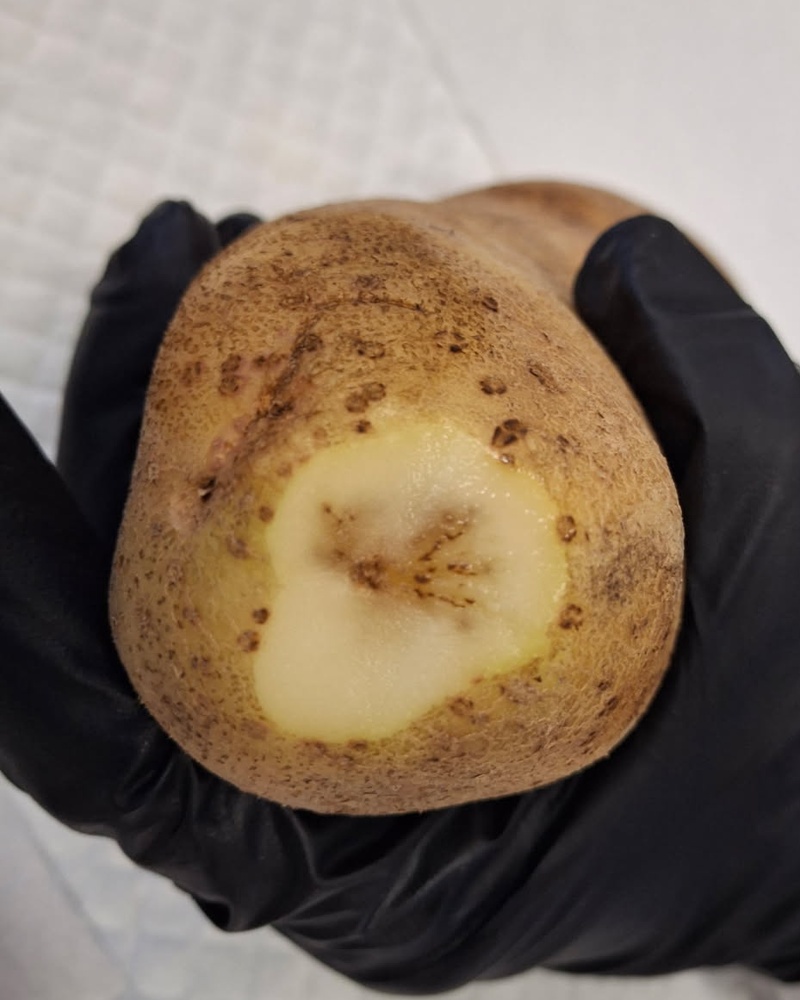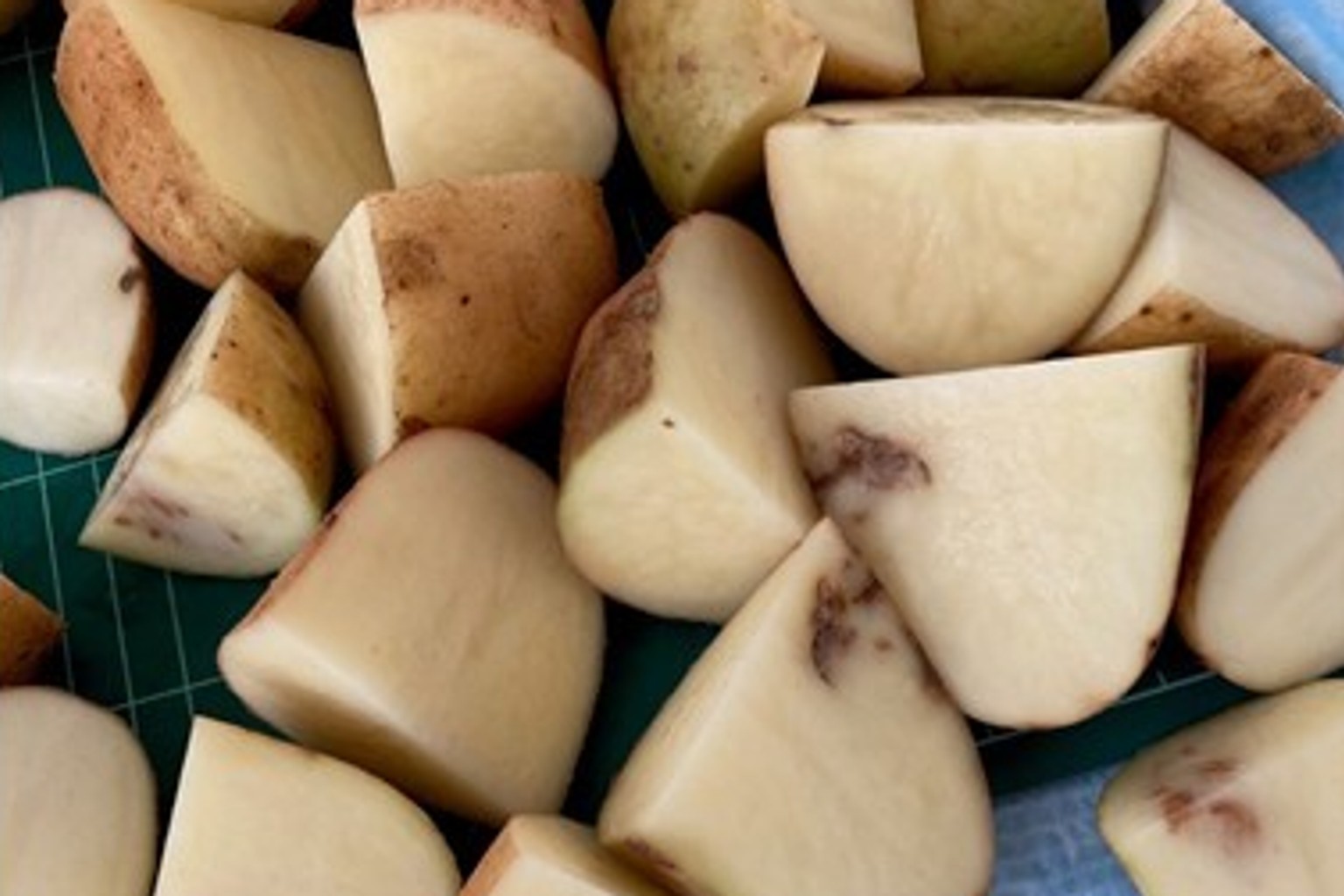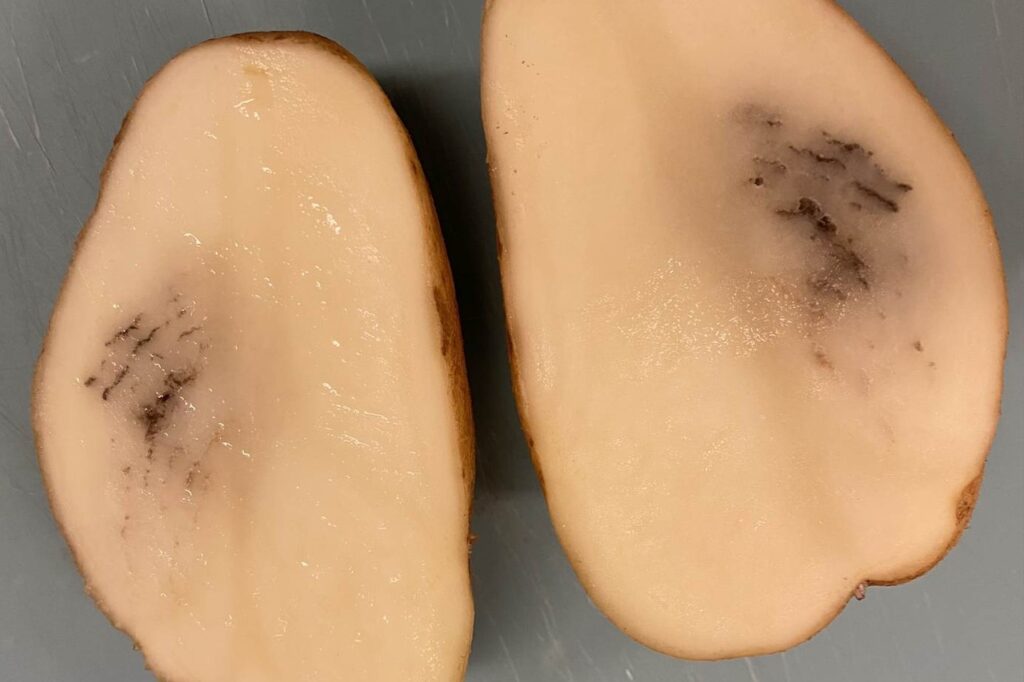Australia will not attempt to eradicate potato mop-top virus, two months after the crop disease was first detected in Tasmania.
The National Management Group, following advice from the Consultative Committee on Emergency Plant Pests (CCEPP), declared last week that the virus cannot be eliminated.
“… [Potato mop-top virus] is not technically feasible to eradicate from Australia,” Biosecurity Tasmania said.
The virus was first detected in Tasmanian crops in July. Since then, authorities have investigated its spread and whether containment was possible.
But the odds are stacked against eradication. The virus is extremely difficult to detect and can survive unnoticed in soil for years.

It is spread by powdery scab, a common potato disease whose spores can survive in soil for over a decade.
It also moves through seed potatoes, tubers and contaminated soil carried on machinery and boots.
With eradication ruled out, Biosecurity Tasmania says the focus is now on management.
“Industry-wide implementation of good biosecurity practices and management of powdery scab are the keys to minimising further spread and reducing impacts of PMTV in Tasmania,” the agency said.
The simplest step is “come clean, go clean” – removing all soil and plant material from equipment and footwear between properties.

Despite the setback, authorities stress there are no food safety concerns. Potatoes remain completely safe to eat.
Fresh and processing potatoes can still be exported to mainland Australia if they meet interstate requirements, while processed products such as chips face no restrictions.
The virus occurs in many countries worldwide and can be managed successfully, officials said.
Biosecurity Tasmania will continue testing to build a clearer picture of the virus and support affected farms with management strategies.
The agency is also working with industry to restore seed potato export markets.
So far, nine sites have tested positive – seven farms, a research site and a storage facility.
Six individual infected potatoes have also been found, including one from a processing site and five from retail stores.
Growers are urged to report unusual symptoms to the Exotic Plant Pest Hotline on 1800 084 881.







